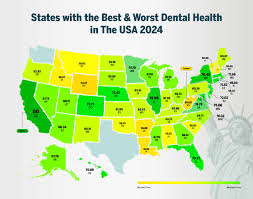In a significant development in the case against Bryan Kohberger, the man accused of murdering four University of Idaho students, prosecutors are looking to introduce a college paper he wrote as evidence. This paper, which discusses crime scenes, could provide insight into Kohberger’s mindset and understanding of criminal behavior.Background of the CaseBryan Kohberger, 30, has been charged with four counts of first-degree murder in connection with the brutal killings of four students: Kaylee Goncalves, Madison Mogen, Xana Kernodle, and Ethan Chapin. The students were found dead in an off-campus home in Moscow, Idaho, on November 13, 2022.
The case has garnered national attention due to its shocking nature and the tragic loss of young lives.Kohberger was arrested in December 2022, and since then, the legal proceedings have been closely followed by the media and the public. As the trial approaches, both the prosecution and defense are preparing their cases, and the introduction of Kohberger’s college paper could play a crucial role in the prosecution’s strategy.The College PaperThe college paper in question was written by Kohberger during his studies in criminal justice. According to a recent court filing, the paper discusses various aspects of crime scenes, including how to analyze evidence and the psychological factors involved in criminal behavior.
Prosecutors believe that this paper could demonstrate Kohberger’s knowledge and understanding of crime, which may be relevant to the case.The decision to use this paper as evidence has raised questions about its implications. If the court allows it, the prosecution may argue that Kohberger’s academic background gives him a unique perspective on committing and covering up crimes. This could potentially strengthen their case against him by suggesting premeditation and intent.
Legal ImplicationsThe introduction of Kohberger’s college paper as evidence is not without controversy. The defense may argue that the paper does not directly link Kohberger to the murders and that it should not be used to infer guilt. They may also contend that using academic work in this manner could unfairly prejudice the jury against him.The judge will need to consider the relevance and admissibility of the paper during pre-trial hearings. If the judge rules in favor of the prosecution, the paper could become a focal point in the trial, influencing how jurors perceive Kohberger’s actions and intentions.
The Prosecution’s StrategyProsecutors are likely to use the college paper to build a narrative around Kohberger’s character and motivations. By highlighting his academic work in criminal justice, they may attempt to paint a picture of someone who not only understood the mechanics of crime but also had the capability to execute it.In addition to the college paper, the prosecution will present other evidence, including forensic analysis, witness testimonies, and any digital footprints that may link Kohberger to the crime scene. The combination of this evidence will be crucial in establishing a strong case against him.The Defense’s PositionOn the other hand, Kohberger’s defense team will work to counter the prosecution’s claims. They may focus on establishing reasonable doubt by questioning the reliability of the evidence presented. The defense could argue that the college paper does not provide a direct connection to the murders and that it should not be used to infer guilt.Furthermore, the defense may explore Kohberger’s background, mental health, and any other factors that could provide context for his actions. They will likely aim to humanize him in the eyes of the jury, emphasizing that he is presumed innocent until proven guilty.
Community ImpactThe case has had a profound impact on the University of Idaho community and beyond. The tragic loss of four young lives has left many grieving and searching for answers. As the trial approaches, the community is eager to see justice served and to understand the circumstances surrounding the killings.The introduction of Kohberger’s college paper as evidence adds another layer of complexity to the case. It highlights the intersection of academia and criminal behavior, raising questions about how knowledge can be used for both good and ill.
Conclusion
As the legal proceedings continue, the case against Bryan Kohberger remains a topic of intense interest and scrutiny. The decision to use his college paper as evidence could play a pivotal role in shaping the trial’s outcome. Both the prosecution and defense are preparing for a battle that will not only determine Kohberger’s fate but also provide insight into the tragic events that unfolded in November 2022.The community and the nation will be watching closely as the trial unfolds, hoping for justice for the victims and their families. The introduction of academic work into a criminal case serves as a reminder of the complexities involved in understanding human behavior and the motivations behind crime.
Disclaimer – Our editorial team has thoroughly fact-checked this article to ensure its accuracy and eliminate any potential misinformation. We are dedicated to upholding the highest standards of integrity in our content.




